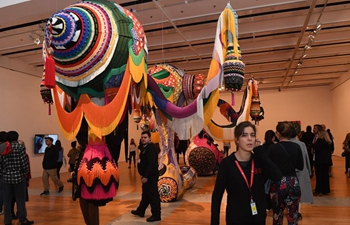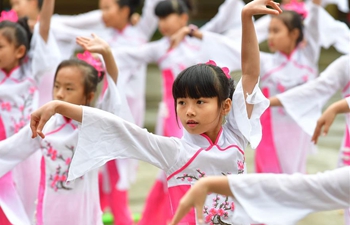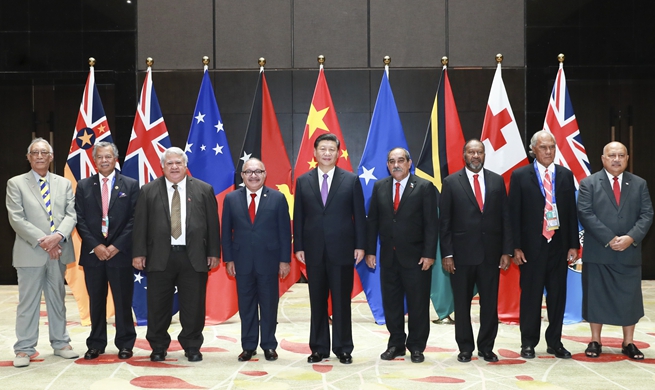NAIROBI, Nov. 17 (Xinhua) -- As Kenya is getting closer to grow genetically modified cotton next year to boost the textile industry, jitters are growing over the crop amid low awareness on its benefits and dangers.
President Uhuru Kenyatta in June asked technocrats in the health and agriculture ministry to explore the prospects of farming the genetically modified cotton, commonly referred to as Bt (Bacillus thuringiensis) cotton.
The move took the east African nation a step closer to joining Botswana, Sudan and South African in growing the crop, with January 2019 set as the launch date for commercialization of the cotton.
Thereafter, farmers are expected to start growing the crop for commercial purposes, therefore, creating some 50,000 jobs.
The Kenya Agricultural and Livestock Research Organization (KALRO) is currently carrying out open field tests for the Bt cotton in Kisumu and Busia in western Kenya, among other areas, ahead of the commercialization.
Bt cotton is genetically modified to contain proteins that are harmful to boll worms, the main pest affecting cotton, according to KALRO.
But as the plan gathers speed, some agriculture lobby groups are opposing the introduction of the cotton, noting it is not safe for human and animals.
Besides, they note that awareness among the public remains low on the benefits of the crop as a 2012 ban on GMOs in Kenya remains in force.
"We are exploring the possibilities of farming Bt cotton and profiling the crop as the panacea to lift the textile industry," said Anne Maina, national coordinator of the Kenya Biodiversity Coalition.
Yet the 2012 ban on GM food imports is still in force and there is no public education and engagement on whether we are ready for this technology, Maina added.
Maina asked the government to look into the health effects that GMOs have on human and animals before they introduce them.
"Almost 60 percent of cotton products are used by animals and human beings and only 40 percent go to the textile industry," she said.
"Cotton seedcake is used in making animal feeds. These animals would later be consumed by human, meaning people would be eating the GMOs."
Layla Liebetrau, programs lead at Route to Food Initiative, noted that Bt cotton would make farmers use more agrochemicals, standing in the way of using ecological agricultural practices.
The country must have a dialogue among sectors and stakeholders before adopting and promoting Bt cotton, she said.
Karen Nekesa, Africa Biodiversity Network programs coordinator, similarly, called on the government to consider food safety and environmental protection before commercializing Bt cotton.
Charles Waturu, KALRO's director of Horticulture Research Institute, however, in a recent interview allayed fears on Bt cotton, noting compared to normal cotton seeds, Bt cotton yields up to some 500 kg per acre and the crop is safer.
Other genetically modified crops under trial in Kenya are drought tolerant maize, bio-fortified sorghum, cassava and gypsophila paniculata cut flowers.
Last year, the National Biosafety Authority (NBA), which regulates all activities involving genetically modified organisms in Kenya, approved environmental release and placing on the market of genetically modified Gypsophila cut flowers in Kenya.
"The GM Gypsophila has been improved through modern techniques by adding a few genetic elements responsible for new range of colours from dark purple and red to light pink coloration in flowers from a model plant called Arapidopsis," said NBA.
Kenya is keen on commercializing the cotton to improve its manufacturing.













